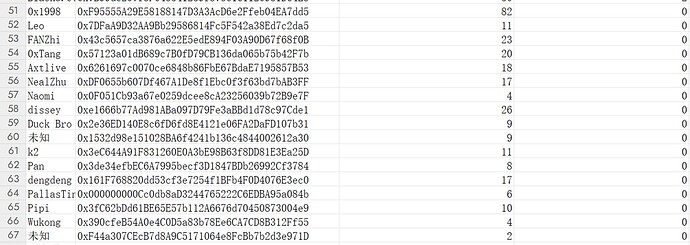Edit: Marcus,Ellen,Q,Bruce,Sanzhi
Time:2023/11/18
TL:DR
Add voting system to DAO Haus, voting membership in DAO Haus will be application based, and proposals will be tiered
Description
The proposal process will take place in both Snapshot and DAO Haus.
The Snapshot proposal will be responsible for community proposal behavior, and proposals that do not involve funding or consensus levels can be voted on directly by the Snapshot proposal.
The DAO Haus proposal will approve funding proposals, including working group proposals, project team proposals, and other proposals for the use of funds, including consensus-level proposals.
Members of the DAOHaus will have governance of the DAO Haus.
Background
During the previous proposal and governance process, there was inactivity in governance, and the governance team has tried to address the inactivity in many meetings and proposals, proposing a number of elements and options, including:
Adopting a dynamic thresholding program to lower the threshold for voting to pass: LIP0: Definition of LXDAO Governance
More proposal reading time, changing the weekly governance cycle: LIP14: Changing the weekly governance cycle
Change voting rights, voting by application:** Proposal: Change Buidler card voting rights**
There have been a lot of interviews about voting inactivity in the community
We have also come to the conclusion that governance needs to be incentivized in such a way that we will be applying for a governance fund of 500-1000 LXP per season to be used as an incentive for active members of governance.
Vote date
We found that many Buidler cards were indifferent to the proposals, with at least 17 members having 0 votes in the last three months of proposals, indifferent to the proposals, and indifferent to the proposals involving some consensus-level proposals because the consensus-level voting rules could not be enforced
Why representative government
According to Wikipedia, representative democracy, also known as indirect democracy (English: indirect democracy), as opposed to direct democracy, is a type of democracy in which citizens elect members of the legislature (parliamentarians) to represent them in exercising power in parliament (known as representation), enacting laws, and managing public affairs
In DAOs, representative democracy is also a common approach - meaning that the DAO delegates representatives to vote on-chain to pass the DAO’s proposals. The delegates are usually elected by the DAO and may refer to off-chain snapshots for community opinion.The DAO may also have some mechanism in place to veto or change the results of the delegate’s vote when the results deviate significantly from the community’s opinion.
Adopting a representative system will improve the efficiency of governance, and also ensure decentralization, so if you are not satisfied with any representative, you can always propose impeachment.
LXDAO Council
Eligibility: Anyone with a Buidler Card can apply and vote.
Composition: Officers will be elected at the beginning of each strategy meeting, with a minimum of 11 (20%) or more, with a 51% threshold for voting.
Personnel Application: Each councilor will submit an application and be elected prior to the strategy meeting.
Duration: One quarter
Application Criteria: Basic information, LXDAO contribution for the quarter, Snapshot votes for the quarter.
Proposal tiering
Proposals that do not involve funding will be voted on by the community Snapshot based on dynamic threshold rules
Funded proposals will be voted on by community Snapshot and then by DAO Haus.
Consensus level proposals will be decided by Snapshot + DAO Haus
Consensus-level proposal rules will be changed from the current Snapshot proposal adoption threshold of 70% to Snapshot proposal dynamic threshold rules + 70% favorable DAO Haus vote.
Capture Resistance
Impeachment Proposals: When a Snapshot proposal has majority support, the person with governance of the DAO Haus can be impeached.
DAO Haus Introduction
DAOHaus is a service platform for DAOs, you can create your own DAO for free, invite members to join, and build your “kingdom” through DAOHaus. Guild Bank, Retreat, Culling, Proposals.
- DAO Assets/Bank
This is your DAO bank, which can hold ETH, other tokens, NFTs, artwork, and anything else your group wants to collectively own.
- DAO Voting.
The system controls group membership, vote allocation, ownership distribution, and decision making. Proposals are submitted for the group to decide and vote on in a variety of ways.
Test dao haus: DAOhaus Admin
L: DR
将投票系统添加到 DAO Haus,DAO Haus 的投票成员将采取申请制,同时对提案进行分层
Description
提案流程将同时采取 Snapshot 和 DAO Haus
Snapshot 提案将主要负责社区提案行为,不涉及资金,不涉及共识级别的提案,可直接由 Snapshot 提案投票通过
DAOHaus 提案将审批资金提案,包括工作组提案,项目组提案,以及其他资金使用提案,同时包括共识级别提案
代议会成员将拥有 DAO Haus 治理权
Background
在之前的提案和治理过程中,出现了治理不活跃的现象,治理小组在多次的会议以及提案中,试图解决治理不活跃这个问题,提出过很多内容和方案,其中包括:
采取动态阈值方案,降低投票通过的阈值:LIP0: Definition of LXDAO Governance
更多的提案阅读时间,更改每周治理周期:LIP14: Changing the weekly governance cycle
更改投票权力,投票采取申请制:Proposal: Change Buidler card voting rights
关于投票不活跃的现象,在社区内,我们也做了很多访谈
我们也得出了治理需要激励的方式,我们每季度将申请 500~1000 LXP 的治理基金,用作激励治理活跃的成员
投票数据面板
我们发现,许多 Buidler card 对于提案漠不关心,在近三个月的提案中,至少有 17 名成员的投票次数为 0 ,对于提案漠不关心,对于涉及到一些共识级别的提案,又因为共识级投票规则无法执行
为何采取代议制
根据维基百科,代议民主,又称间接民主(英语:indirect democracy),与直接民主相对立,是由公民以选举形式选出立法机关的成员(议员)来代表其在议会中行使权力(称为代议)、制定法律和管理公共事务的一类民主制度
在 DAO ,代表制民主也是一种常见的方式——指 DAO 委托代表在链上投票,以通过 DAO 的提案。代表通常由DAO选出,并可能会参考链下快照来了解社区民意。DAO可能还会设置某种机制,当代表的投票结果严重偏离社区民意时对结果进行否决或变更。
采取代议制将提高治理的效率,同时也能保证去中心化,如果你对哪位代表不满,你可以随时提出弹劾提案
LXDAO 议会
申请资格:任何持有 Buidler Card 的人都可以申请和选举
人员组成:人员将由每次战略会议开始选举,至少 11 人(20%)以上,投票采取通过阈值 51% 规则
人员申请:每次议员将会在战略会议前提交申请并选举
持续时间:一个季度
申请评判标准:基本信息,LXDAO 当季度贡献值,当季度 Snapshot 投票情况
提案分层
未涉及到资金的提案,将经过社区 Snapshot 根据动态阈值规则投票
涉及到资金的提案,将经由社区 Snapshot 投票通过后经过 DAO Haus 投票通过
共识级提案将由 Snapshot + DAO Haus 共同决定
共识级别提案规则将有目前 Snapshot 提案通过阈值 70% 改变为 Snapshot 提案动态阈值规则+DAO Haus 投票 70% 的赞成票进行决定
捕获阻力
弹劾提案:当 Snapshot 提案具有大多数人支持时,可以对拥有 DAO Haus 治理权的人员进行弹劾
DAO Haus 介绍
DAOHaus 是一个 DAO 的服务平台,你可以通过 DAOHaus: 免费创建属于你自己的 DAO,邀请成员加入,构建你的"王国"。 公会银行、怒退、剔除、提案.
- DAO 资产/银行
这是您的 DAO 银行,它可以持有 ETH、其他代币、NFT、艺术品,以及您团体想要作为集体拥有的任何东西。
- DAO 投票
系统控制组内的成员资格、投票分配、所有权分配和决策。提交提案以供小组以各种方式做出决定和投票。
研究内容
Test: DAOhaus Admin
